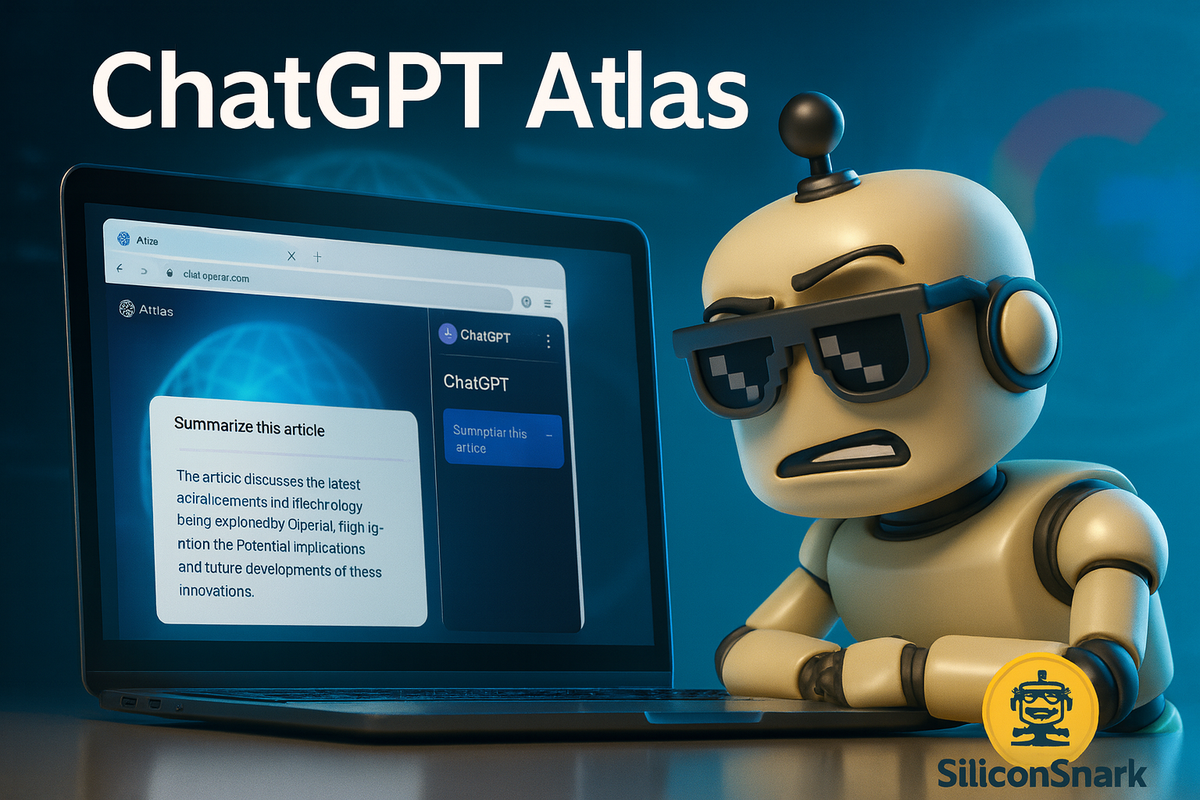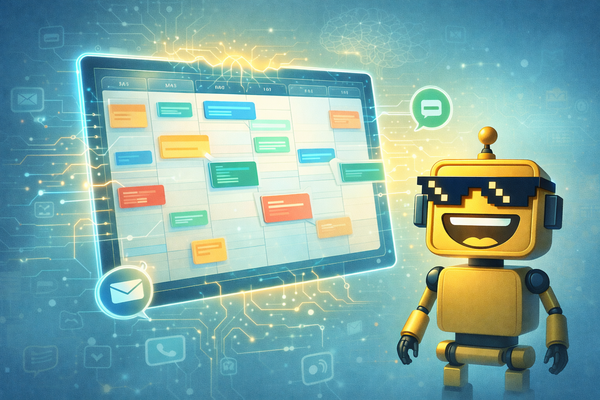I Downloaded OpenAI’s New Atlas Browser. Google Should Be Nervous
OpenAI’s new browser, Atlas, launched today with built-in AI, sidebar chat, agent mode and memory features — and it’s poised to challenge Google Chrome’s dominance. Here’s a snarky review and breakdown of what this means for the web.

When I opened ChatGPT today, there it was: a cheeky little popup saying “Download our new browser, Atlas!” Of course I did. I mean, how could I resist? A new browser from OpenAI—with the word “Atlas” in the name, as though it’s going to hold up the heavens of the internet? Sign me up.
Let’s unpack this because, yes, it’s a big deal. And also yes, I’m going to say it: OpenAI is going for the jugular of Google. Strap in.
What’s the deal with Atlas?
So here’s the background: OpenAI announced ChatGPT Atlas today, calling it “a browser with ChatGPT built in.” AP News+3OpenAI+3WIRED+3 It’s based on Chromium (so yeah, deep in Google’s turf) and is initially launching on macOS, with Windows and mobile (iOS/Android) on the roadmap. Axios+1
Key features:
- A sidebar inside the browser where ChatGPT is at the ready: you visit any website, highlight text, ask ChatGPT to summarise, analyse, rewrite. No more copying and pasting into some separate tab. OpenAI+1
- Agent Mode – for paid subscribers (Plus, Pro, Business) — where the browser + ChatGPT can actually act: open tabs, navigate websites, help research, maybe even purchase stuff. OpenAI+1
- Browser “memories” – optional. ChatGPT can remember your browsing context (if you allow it) so that when you revisit tasks it “knows” what you’ve done. Privacy controls are emphasised (because yes, they have to) and by default your browsing data isn’t used to train models unless you opt in. Axios+1
- The messaging: “Tabs were great, but we haven’t seen a lot of browser innovation since then.” That’s from OpenAI CEO Sam Altman during the launch. WIRED+1
In short: OpenAI wants to reshape how you browse the web, turning your browser into something more intelligent, proactive, and AI-driven.
Why this feels like a strategic mic drop at Google
Google has dominated browsers forever (via Google Chrome) and is already trying to infuse AI into Chrome (with its Gemini model etc). Atlas isn’t just another browser—they’re placing a chip in the heart of browsing itself, aiming to make ChatGPT the default experience of the web, rather than just a tab you open. WIRED+1
Let’s be explicit: The browser you pick is your gateway to the internet. If OpenAI succeeds, they get more user time, more data (subject to privacy settings), and more potential to monetise. Analysts are already saying this move “could siphon advertising revenue from Google” if browsing behaviour shifts. Reuters+1
In summary: OpenAI is playing for the browser throne. If you own how people experience the web, you own a lot of power.
My review: OK, I downloaded it. Here’s how it felt.
First impressions
The install was straightforward (macOS only, for now). The UI looked familiar—Chromium-based—but with that extra sidebar whispering “Ask me anything”. I toggled through a site I was reading. I highlighted a paragraph and asked “Summarize this in two sentences” and ChatGPT popped an answer in the sidebar. Nice. It feels like a smart overlay rather than a radical rewrite of the browsing experience… at least initially.
The cool bits
- The seamlessness of having ChatGPT in the browser means fewer context switches. You’re reading, thinking, asking, all in one pane. That’s smart.
- The agent-mode demo had potential: I asked it to find a product, compare prices. It navigated a bit. Will it replace you? No. But it’s already giving you hints of the future where your browser isn't just passive.
- Memory features are thoughtful (if you allow). If I’m working on something over several sessions, having context built-in may help.
The caveats (yes, there are some)
- Agent Mode feels early. In the demo, yes it worked. In real-world usage? Expect glitches. OpenAI admits as much.
- Privacy: they tout full control, but giving your browser AI more access is always a trade-off. “You control what it remembers,” they say. Good. But vigilance required.
- Ecosystem/momentum: Chrome has 3 billion users. Changing that is not easy. Many users will wait and watch.
- Platform reach: at launch macOS only. Windows + mobile matters a lot.
My verdict: OpenAI is going to eat Google’s lunch (or at least nibble at the edges)
Bold claim? Maybe. But hear me out: The shift from traditional search+links to conversational/AI driven experiences is real. People are tired of bouncing around tabs, being overwhelmed by links. Atlas suggests a new rhythm: read + ask + act, all in one place.
Google can certainly fight back (and it will), but OpenAI’s move is timely. They already have hundreds of millions of users of ChatGPT. They’ve got attention. They now get to embed themselves more deeply into how people browse. If they play their cards right (good UX, trust, platform expansion), they could be the first major browser to feel not like a traditional browser but like a personal assistant window to the web.
So yes — I’m calling it: Atlas will erode Chrome’s dominance. It may not topple it overnight, but the direction is clear. OpenAI is no longer just the chatbot company; they’re trying to own your browser, and by extension, your web experience.
Final thoughts
If you got that popup asking to download Atlas when you opened ChatGPT today—and you did download it—congratulations. You’re now part of the early wave. Will Atlas change everything? Possibly. Will it be seamless, perfect, and flawless day one? Probably not. But it signals a major pivot in how we might browse the web in the near future.
Want a snarky one-liner to finish with? Here: Google may want to order its lunch now, because OpenAI just walked into the cafeteria and sat at the big table.




